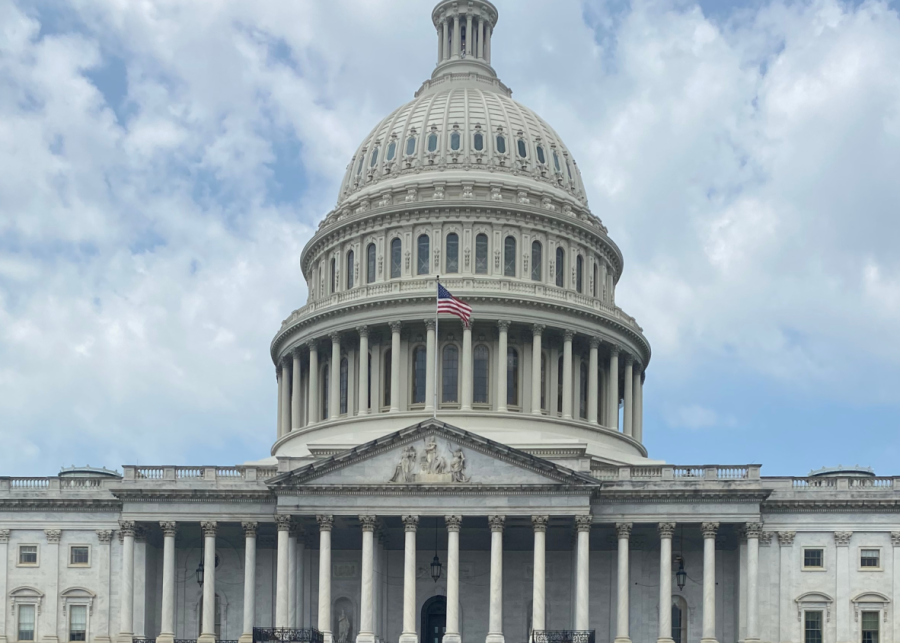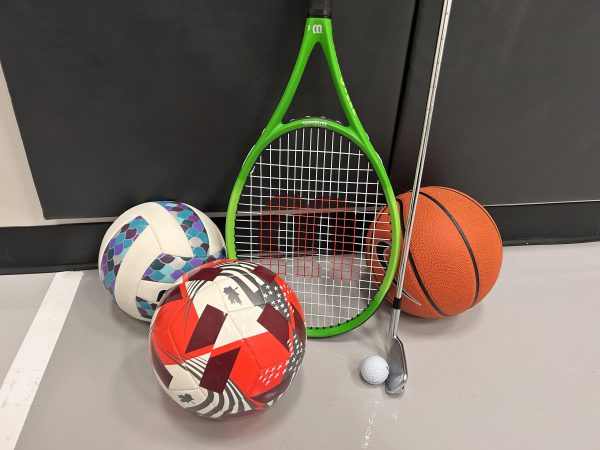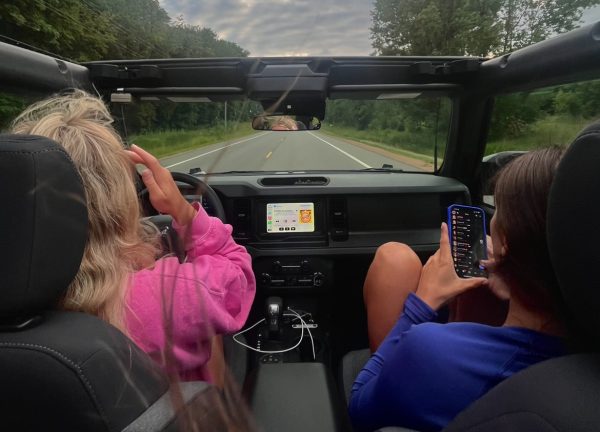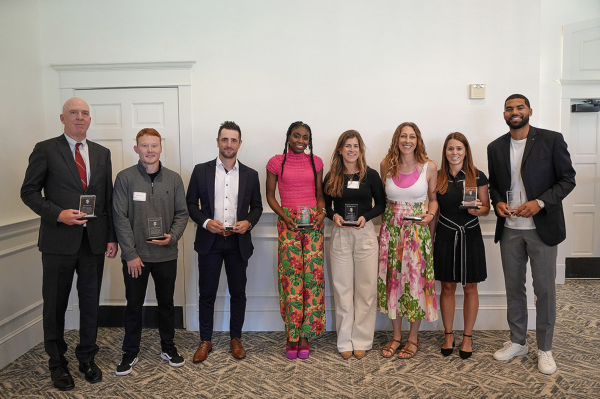Participation Offers an Antidote to Political Polarization and Democratic Dysfunction
Informed and tolerant political participation is an important component of a successful democracy.
Section One: Current Engagement
Democracy depends on political participation. Whether voting in state and federal elections, contacting local representatives, or even running for office, engagement with the political process is the only way to achieve meaningful progress.
Participation is especially important for young people, perhaps now more than ever, because they are the primary stakeholders in issues that affect future generations. Each generation fulfills this responsibility to a different degree.
Today, the combination of broad political, economic, and social discontent, coupled with the enormous consequences of current issues like gun violence, reproductive rights, voting access, and climate change has cultivated a younger generation that is increasingly engaged and willing to strive for a better future.
As an example, look to recent voting statistics. Tufts University’s Center for Information and Research on Civic Learning and Engagement (CIRCLE) found that, despite significant variation between states, turnout among young people (ages 18-29) is rising.
In the 2020 presidential election, about 50% of young people cast a ballot. This is a sharp increase from 39% in 2016. More recently, in the 2022 midterm elections, 27% of young people cast a ballot. This is the second highest youth voter turnout in midterm elections in almost three decades.
But despite recent progress, overall voter turnout still lags behind peer countries. Only 62.8% of the US voting-age population cast a vote in 2020, which, according to analysis by the Pew Research Center, puts the US in 31st place among OECD member countries, candidates, and other selections.
To Dean Phillips, Representative of Minnesota’s Third Congressional district since 2019, such absence of engagement is cause for concern. “We have a crisis of participation, meaning that too many Americans don’t vote in primary elections, too many Americans are not engaged,” Phillips said.
We have a crisis of participation, meaning that too many Americans don’t vote in primary elections, too many Americans are not engaged,
— Phillips
As a result, those who do engage with the political process carry disproportionate influence over the future of the country. “We’re handing over the keys to democracy to the very activist base on the left and the very activist base on the right, and the overwhelming [majority] of the country is somewhere in between,” Phillips said.
“I think the overwhelming majority of Americans and young people all around the country are for the most part, somewhere center right or center left, but we are now being portrayed as a country that is utterly divided, and irretrievably so, and I don’t think that’s the case,” Phillips said.
This is the result of several factors: the mainstream media coverage of politics, which Phillips refers to as “angertainment,” and, more broadly, an erosion of democratic norms.
In their 2018 book How Democracies Die, Harvard University political scientists Steven Levitsky and Daniel Ziblatt identify norms that are foundational to democracy. One is mutual toleration, or the ability of people to disagree without viewing the other side as a threat to democracy.
We’re handing over the keys to democracy to the very activist base on the left and the very activist base on the right, and the overwhelming [majority] of the country is somewhere in between,
— Phillips
Concerningly, mutual toleration has become harder to find. A 2020 working paper by the National Bureau of Economic Research found that the US is undergoing political polarization faster than similarly developed, democratic countries. People are shifting towards ideological extremes at a rate and scale far beyond peer countries.
Polarization is a clear example of mutual toleration in decline. This is alarming to the extent it prevents recognition of common ground, thereby rendering constructive compromise nearly impossible. Compromise, in turn, is essential to a functioning democracy because it means different groups are able to achieve their priorities without preventing others from doing so.
Phillips offers a solution: fostering bipartisanship. Bipartisanship is when people (especially politicians) work together despite their political differences. Phillips holds Common Ground sessions that bring people of different political backgrounds together to talk about important and often controversial issues. More often than not, they have more in common than they realized. “I’ve seen firsthand how when you break bread and give space in place for people to get to know each other, it can change everything,” Phillips said.
That is exactly why hearing other perspectives is important. Although it may not alter one’s deeply held beliefs, exposure to different worldviews promotes empathy and understanding.
“One of the reasons I ran for Congress was my disgust with the culture of politics and wanting to … demonstrate that even people with different views and different backgrounds can have thoughtful conversations and learn from one another,” Phillips said.
Section Two: Youth Participation
Although American politics is increasingly fraught with division, they do not have to stay that way. “All is not lost, but we got to have people participate, and that includes high school students. You can’t watch from the sidelines. You got to get on the field and play the political game,” Phillips said.
Senior Francesca Lichtenberger, who served on the city of Edina’s Human Rights and Relations Committee and Human Services Taskforce, believes students can participate in multiple ways. “While most of us cannot vote yet, we can sign petitions, raise awareness, and contact members of our government to see changes we would not be able to contribute to otherwise,” Lichtenberger said in an email interview.
All is not lost, but we got to have people participate, and that includes high school students. You can’t watch from the sidelines,
— Phillips
In particular, Lichtenberger emphasizes the importance of social media as a tool for promoting youth participation. “Social media, especially Instagram in my case, made me aware of a variety of global issues starting at a very young age, and I think many others in my generation would agree with that statement,” Lichtenberger said.
By becoming informed, people can then advocate for change. “Both the severity of these topics, as well as responses to these problems that I was seeing online, motivated me to make positive efforts in my own community,” Lichtenberger said.
Mobilizing youth participation is one of the best ways to create lasting, good-faith engagement with the political process. It may also be the only way for the US to avoid disaster. “History is filled with Democratic experiments that failed. And if Americans don’t engage, participate, the sad truth is, we will likely be amongst them,” Phillips said.
But Phillips, who has made cultivating empathy and engagement across party lines a defining characteristic of his Congressional career, is hopeful that Generation Z recognizes what is at stake and will act accordingly.
History is filled with Democratic experiments that failed. And if Americans don’t engage, participate, the sad truth is, we will likely be amongst them,
— Phillips
Generation Z may be underrepresented at the ballot box, but they are not disengaged. Instead, they interact with issues in less formal ways. “A lot of very outspoken people, myself included, have stopped taking a more passive approach to things. I think the reason [Benilde-St. Margaret’s] is changing is because more people are speaking up more, people are pointing out the problems, and that’s really bringing a lot of issues that we’ve had to light,” senior Eleanor Hutcheson said.
To Phillips, this is a positive trend. “I’m continually impressed by [young people’s] level of engagement…and it gives me a lot of hope for the future. Because even if you can’t vote yet, you can be a significant influencer and participant in democracy…We need thoughtful and principled conservatives and we need thoughtful and principled progressives to help lead our country forward,” Phillips said.
“I have great hope and optimism that the generation rising and future generations of Americans will recognize the responsibility that we have to ensure that this democratic experiment continues for generations to come. And that’s why it’s the responsibility of everybody who has the blessing of being an American citizen to become a participant, because without that, we will fail,” Phillips said.

















































